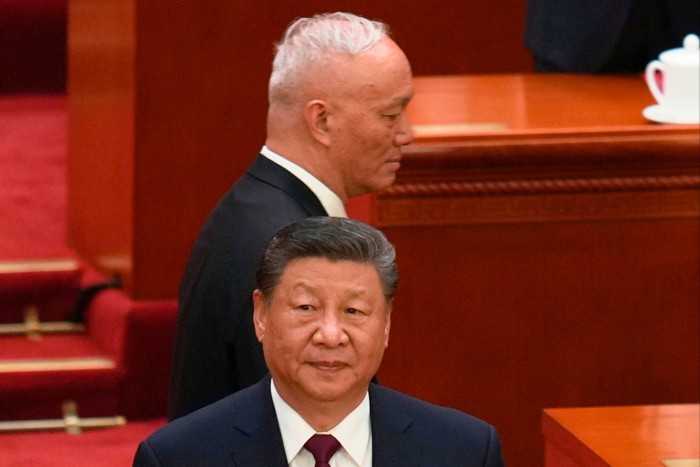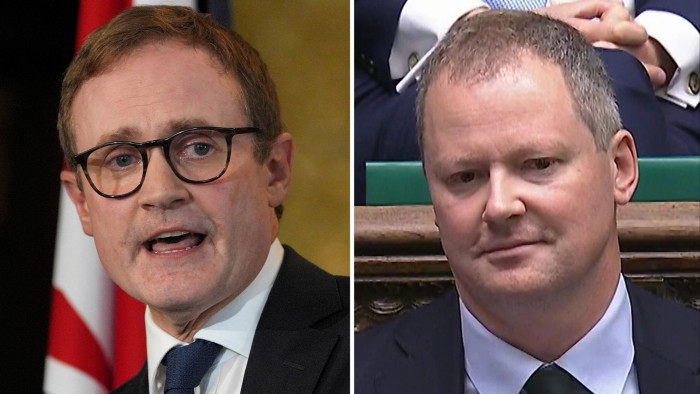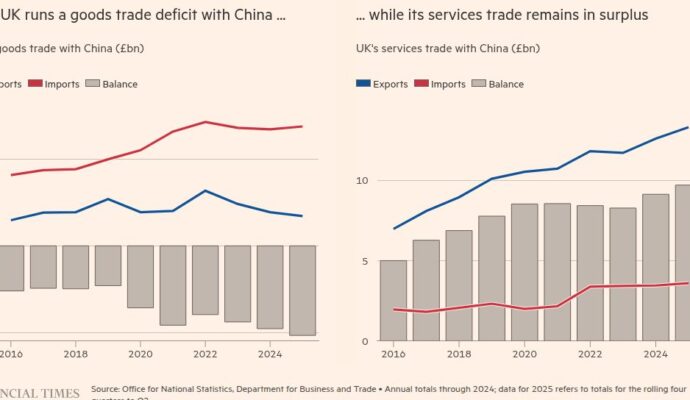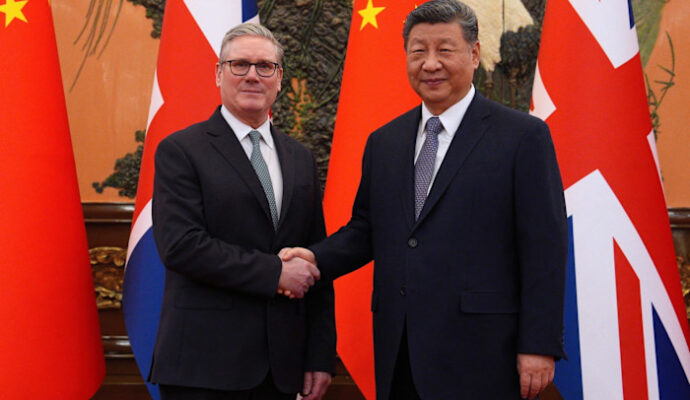Few discussions about the black box of elite politics in China under Xi Jinping exclude the name Cai Qi.
The political veteran is technically the fifth-ranked leader of the Chinese Communist party. But that ranking belies his daily proximity and importance to China’s most powerful leader since Mao Zedong via his role as director of the General Office of the Central Committee — making him essentially Xi’s chief of staff.
While Cai typically operates behind the scenes, the 69-year-old has been thrust into the international spotlight after witness statements were released by UK Prime Minister Sir Keir Starmer from the collapsed prosecution of two British men over allegations they spied for China.
According to statements provided by the UK’s deputy national security adviser Matt Collins, Christopher Berry, who worked as a researcher in China, allegedly met Cai in July 2022 in Hangzhou, the capital of eastern China’s Zhejiang province. The statements do not name Cai explicitly but provide identifying information.
Referring to the alleged meeting, Collins said: “It is highly unlikely that one of the most senior officials in China would meet with Mr Berry unless the Chinese state considered him to be someone who could obtain valuable information.”
Collins added: “The short amount of time that Mr Berry was given to provide the requested information and analysis indicates to me that it may have been used to inform real-time decision making.”
At that time Cai was party secretary of Beijing and a member of the 25-person politburo, making him among the country’s top echelon of leaders. He had worked under Xi at various points since the 1980s, in both Fujian and Zhejiang.

Underscoring his close ties with Xi, in October 2022 — just months after the alleged interaction with Berry — Cai was among the loyalists promoted to the inner sanctum of Chinese politics, the seven-member Politburo Standing Committee.
In the lead up to Cai’s promotion, Li Cheng, a top scholar on Chinese elite politics now with the University of Hong Kong, said Cai was “one of Xi’s most trusted confidants” known for “energetically supporting ‘absolute loyalty’ to Xi”. He also noted Cai had been praised for his leadership role in hosting the Beijing Winter Olympics earlier that year.
Illustrating Cai’s importance to Xi, state media often notes that he is among those leaders travelling with Xi and attending his meetings. That includes trips made by Xi to Xinjiang and Tibet this year.
China’s foreign ministry has been approached for comment. Earlier on Thursday the ministry was asked at a regular press conference about the witness statements and allegations that Chinese intelligence services are carrying out large-scale espionage operations against the UK.
“China’s position is very clear. We firmly oppose peddling ‘China spy’ narratives and vilifying China,” said Lin Jian, a spokesperson for the foreign ministry.
Given Cai’s seniority and close relationship with Xi, China watchers have been stunned by the allegations and urged caution in assessing their veracity.
Kerry Brown, professor of Chinese studies at King’s College London, said he could not recall any meeting in China by a leader of Cai’s level with a figure as junior as Berry.
“This is not to deny such a thing might in the outer bounds of possibility happen. But it would be unprecedented, if only because of fears on the Chinese side that no matter what the value of a meeting might be, it could well end up being discovered,” he said.
Brown added that Chinese elite political figures, which Cai “certainly was from 2017” — when he was promoted to Beijing party boss and the politburo — are very difficult to access for national leaders of other countries.
“One should be quite sceptical that a meeting along the lines described could have taken place without very strong evidence,” he said.
In his first witness statement, Collins explained why Berry, though relatively young, might have been seen as an important asset. He was allegedly receiving information directly from Christopher Cash, a parliamentary researcher who was working closely with senior MPs in the ruling Conservative party at the time. Both Cash and Berry denied wrongdoing and were formally acquitted.

Two of these Conservative MPs — Tom Tugendhat and Neil O’Brien — had been sanctioned by China for their role in founding the hawkish China Research Group, which Cash later became director of. Tugendhat was also the UK’s security minister during part of the period the alleged espionage took place.
In July 2022, at the time of the alleged meeting between Berry and Cai, Tugendhat was also a candidate to become the UK’s next prime minister after Boris Johnson’s resignation, as he would run — ultimately unsuccessfully — to become leader of the Conservative party.
Still, Jonathan Sullivan, an expert on Chinese politics at the University of Nottingham, noted the dense bureaucratic hierarchies of Chinese intelligence services and said it was hard to believe that such a low-level foreign asset would have access to or be connected to “someone as elevated as Cai Qi”.
Neil Thomas, an expert on elite Chinese politics at the Asia Society Policy Institute think-tank, said given Cai’s role in Beijing at the time, any travel to Hangzhou would likely require approval from Xi himself. “If it happened, the meeting suggests the information they were acquiring in Westminster was seen as unusually valuable by the party leadership,” he said.


